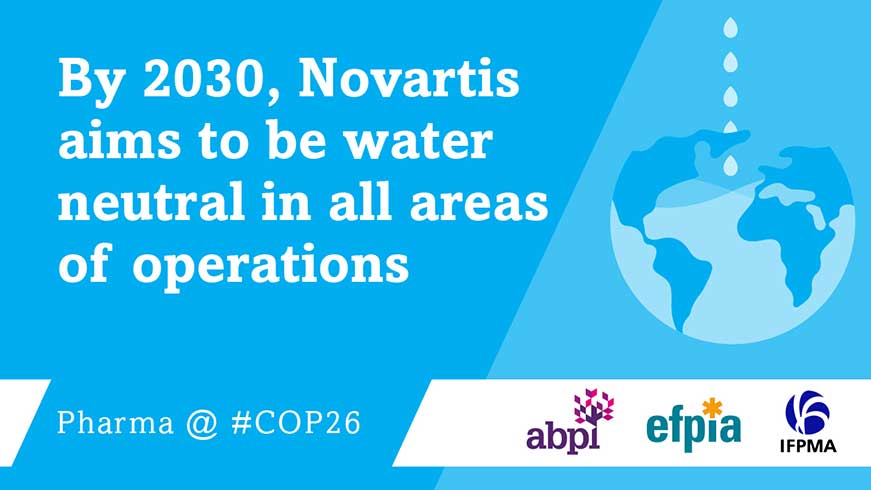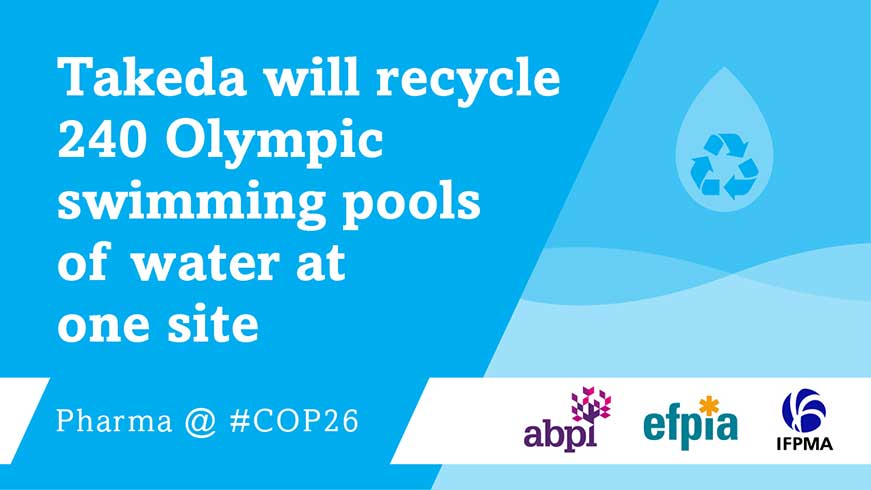Saving water
Our industry recognises the need to conserve water, particularly with climate change making water availability less predictable in many places.
For industry, responsible water management means using water efficiently and safely throughout the lifecycle of products, including in their supply chain. It also means helping to preserve water quality by preventing pharmaceuticals entering water courses like rivers.
This mainly happens as a result of excretions from patients being treated with the medicines and improper disposal of unused or expired medicine. Relatively small quantities come from drug manufacturing effluents and R&D facilities.

Novartis
By 2025, Novartis aims to reduce water consumption in their operations by half versus 2016, with no water quality impacts from manufacturing waste, and aim to be water neutral by 2030.
They have built a new wastewater treatment plant in Romania, equipped with the latest carbon-filter technology to better purify water from active pharmaceutical ingredients.
Takeda
Takeda aims to achieve a 5% reduction in water consumption by FY2025 (relative to FY2019) levels. One example of their work has been the introduction of a project to recycle wastewater at their manufacturing site in Lessines, Belgium.
For this they have teamed up with Belgian company Ekopak, whose technology makes the treatment and re-use of rainwater and wastewater possible on a large scale. At Lessines, this means that 600,000 m3 of water could be recycled and returned for use in manufacturing, meeting all of the strict quality requirements in the process. This is 90% of the site’s entire freshwater consumption.

Last modified: 20 September 2023
Last reviewed: 20 September 2023
